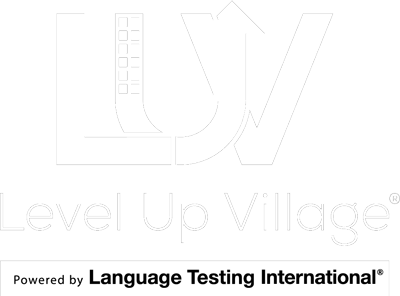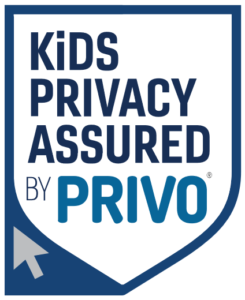Introduction
Cultural competence is the ability to understand, appreciate, and effectively work with individuals from diverse cultural backgrounds. It involves developing knowledge, skills, and attitudes that enable individuals to respect and value cultural differences, communicate effectively with people from different cultures, as well as being aware of one’s own cultural biases and beliefs.
Cultural competence education is becoming increasingly important in today’s world. The world is becoming increasingly interconnected, with people from different cultures coming into contact more frequently than ever before. As a result, understanding and appreciating cultural differences is critical to promoting communication, cooperation, and collaboration among people from diverse backgrounds.
Overall, cultural competence in education is crucial in today’s world as it helps individuals and institutions to navigate an increasingly diverse and complex global landscape. By promoting understanding and appreciation of different cultures, cultural competence education can help to create a more inclusive, equitable, and just world.
Cultural Competence Education: Definition and Scope
Cultural competence education is a process of learning and developing the knowledge, skills, and attitudes necessary to understand and effectively work with individuals from diverse cultural backgrounds. It involves acquiring an understanding of different cultural norms, practices, and perspectives, as well as developing the ability to communicate effectively across cultures. Cultural competency in education aims to promote inclusivity and equity by reducing cultural barriers, challenging bias and stereotypes, and fostering mutual respect and understanding among individuals from diverse cultural backgrounds. This education can take many forms, including formal training programs, workshops, virtual exchanges, and self-directed learning activities. It is an ongoing process that requires continual learning, self-reflection, and active engagement with individuals from different cultures.
The scope of cultural competence education is broad, and it can be applied in many different settings and contexts. Some of the areas where cultural competence education is particularly relevant include the following.
Education
Cultural competence education is a process of learning and developing the knowledge, skills, and attitudes necessary to understand and effectively work with individuals from diverse cultural backgrounds. It involves acquiring an understanding of different cultural norms, practices, and perspectives, as well as developing the ability to communicate effectively across cultures. Cultural competency in education aims to promote inclusivity and equity by reducing cultural barriers, challenging bias and stereotypes, and fostering mutual respect and understanding among individuals from diverse cultural backgrounds. This education can take many forms, including formal training programs, workshops, virtual exchanges, and self-directed learning activities. It is an ongoing process that requires continual learning, self-reflection, and active engagement with individuals from different cultures.
The scope of cultural competence education is broad, and it can be applied in many different settings and contexts. Some of the areas where cultural competence education is particularly relevant include:
Well, you know this to be a not-so-uncommon issue: while one and a half billion people speak English in the world, only about a third or fewer of them speak it as a second language. Turn this into a moment of practicing patience, empathy, and humility for your students. Perhaps they’ll take an interest in the differences in mannerisms of speech, dialect, and phrasings. Emphasize the enjoyment of the dialogue over the effectiveness of understanding one another immediately. Encourage clarifying questions and likely, the students will open up even more about their ways and what’s important to them.
Healthcare
Healthcare providers need to have a deep understanding of their patients’ cultural backgrounds to deliver appropriate care. Cultural competence education in healthcare can improve patient outcomes, reduce disparities, and increase patient satisfaction.
Business
In a globalized world, businesses need to be able to work effectively with individuals and organizations from diverse cultural backgrounds. Cultural competence education can help businesses develop strategies to communicate effectively, build relationships, and negotiate deals with partners from different cultures.
Overall, the scope of cultural competence education is broad, and it can be applied in many different fields and contexts. The goal is to promote understanding and respect for cultural differences, reduce cultural barriers, and create a more inclusive and equitable society.
Importance of Cultural Competence Education
Cultural competence education is an important tool for everyone to learn in today’s world due to increased diversity in the workplace and an increase in globalization and, with it, multiculturalism. Cultural competence education can help reduce racial and ethnic disparities in healthcare, improve communication and interpersonal skills, and reduce stereotypes and biases.
Increased Diversity in the Workplace
Cultural competence education is essential in today’s workplace due to the increasing diversity of the workforce. The globalization of the economy and advances in communication technology have led to more international collaboration and immigration, resulting in a more diverse workplace. It is crucial in a diverse workplace to promote better communication, teamwork, productivity, reduce discrimination and bias, and attract and retain talent. Employers who invest in cultural competence education for their employees will be better equipped to thrive in today’s global economy.
Globalization and Multiculturalism
The world is becoming more connected and diverse, with people from different cultures interacting more frequently and in a variety of ways. Cultural competence education is essential in the context of globalization and multiculturalism. It promotes understanding and appreciation of cultural differences, encourages effective communication, helps to avoid misunderstandings, fosters creativity and innovation, and creates an inclusive society that values diversity.
Reducing Racial and Ethnic Disparities in Healthcare
Cultural competence education is critical in reducing racial and ethnic disparities in healthcare. Racial and ethnic minorities often face disparities in healthcare, including lower quality of care, poorer health outcomes, and higher rates of chronic disease. By promoting understanding and respect for different cultural backgrounds, cultural competence education can help to improve communication, increase trust, reduce bias, address disparities, and enhance patient satisfaction.
Improved Communication and Interpersonal Skills
Cultural competence education is important for improving communication and interpersonal skills. By enhancing understanding, reducing misunderstandings, promoting active listening, increasing empathy, and building relationships, developing one’s cultural competency can help individuals to communicate more effectively and build positive relationships with individuals from diverse backgrounds.
Reducing Stereotypes and Biases
Cultural competence education is essential for reducing stereotypes and biases that can arise from lack of understanding and exposure to different cultures. By promoting self-awareness, fostering understanding, encouraging critical thinking, improving empathy, and leading to better decision making, cultural competence education can help individuals to approach others with an open mind and reduce the negative impact of stereotypes and biases.
Challenges to Cultural Competence Education
There are several challenges to cultural competence education. Below are some additional challenges
Resistance to Change
Cultural competence education may challenge long-held beliefs, values, and attitudes. This can lead to resistance to change among individuals and organizations who may be reluctant to adapt to new approaches or practices.
Lack of Resources and Funding
Cultural competence education may require significant resources, including funding, time, and personnel. Organizations may be hesitant to invest in these resources if they do not see immediate benefits or if they have limited resources.
Limited Awareness and Understanding of Cultural Competence
Cultural competence education may be unfamiliar or misunderstood by some individuals or organizations. This lack of awareness and understanding can hinder efforts to promote cultural competence and may lead to skepticism or resistance.
Overall, addressing these challenges is important for promoting cultural competency and ensuring that individuals and organizations are equipped to effectively navigate and engage with a diverse world. Strategies to address these challenges may include increasing awareness and understanding of cultural competence, investing in resources and funding for cultural competence education, providing language education and support, and overcoming resistance to change through effective communication and engagement.
Best Practices in Cultural Competence Education
You’ve learned what cultural competence education is, now how do you weave cultural competency into your curriculum and professional development plans?
Incorporating cultural competence into the curriculum is a key best practice for promoting cultural competence education. Below are some specific strategies for incorporating cultural competence into the curriculum.
Start Early
Cultural competence education should begin early in a person’s education, ideally at the elementary or middle school level. This can help to promote a strong foundation of cultural competence skills that can be built upon as the person progresses through their education.
Integrate Cultural Competence into Existing Subjects
Cultural competence education should be integrated into existing subjects, rather than being taught as a separate course. This can help to ensure that cultural competence is seen as an important and integral part of all areas of education.
Use Culturally Responsive Teaching Strategies
Teachers should use culturally responsive teaching strategies that recognize and value the diversity of their students. This can include using diverse teaching materials, incorporating cultural themes into lesson plans, and providing opportunities for students to share their own cultural backgrounds and experiences.
Incorporate Cross-Cultural Experiences
Cultural competence education should include opportunities for students to engage in cross-cultural experiences, such as field trips, service learning projects, virtual exchanges with a classroom in another country, or study abroad programs. These experiences can help to promote cultural understanding and provide students with hands-on opportunities to apply their cultural competence skills.
Overall, incorporating cultural competence into the curriculum is an important strategy for promoting cultural competence education and ensuring that individuals are equipped to effectively navigate and engage with a diverse world.
Training and professional development opportunities are another important best practice for promoting cultural competence education. By providing regular and ongoing training, using a variety of training methods, incorporating real-life scenarios, providing opportunities for feedback and reflection, and customizing training to specific roles and contexts, organizations can help to develop the cultural competence skills needed for success in today’s global and diverse society.
Utilizing technology and online resources is another important strategy for promoting cultural competence education and ensuring that individuals are equipped to effectively navigate and engage with a diverse world. By providing online courses and modules, video and multimedia resources, online discussion forums, cultural competence assessment tools, and social media and online communities, organizations can help to develop the cultural competence skills needed for success in today’s global and diverse society.
Conclusion
Cultural competence education is becoming increasingly important in today’s global and diverse society. It can help individuals develop the skills and knowledge needed to effectively engage with individuals from different cultural backgrounds, reduce stereotypes and biases, improve communication and interpersonal skills, and reduce disparities in healthcare.
To promote cultural competence education, it is important to incorporate it into the curriculum, provide training and professional development opportunities, and utilize technology and online resources. These best practices can help organizations promote cultural competence and equip individuals with the skills and knowledge needed to navigate a diverse world.
In the future, cultural competence education will likely become even more important as globalization and diversity continue to increase. As a result, organizations will need to continue to prioritize cultural competence education and ensure that individuals have the skills and knowledge needed to effectively engage with individuals from different cultural backgrounds. This will require ongoing training and development opportunities, as well as a commitment to incorporating cultural competence into all aspects of organizational culture and practices.
FAQs
Cultural competence education refers to the process of learning and developing the skills and knowledge needed to effectively engage with individuals from different cultural backgrounds. This includes understanding and respecting different cultural beliefs, values, and practices, as well as developing communication and interpersonal skills that enable effective engagement with individuals from diverse backgrounds.
Cultural competence education is important for promoting understanding, empathy, and respect for individuals from diverse backgrounds, and for equipping individuals with the skills and knowledge needed to navigate a diverse world in a way that promotes inclusion and equity for all.
Cultural competence education can promote greater understanding, respect, and inclusion for individuals from diverse backgrounds, and can improve communication, empathy, problem-solving, and decision-making skills in a variety of settings.
Incorporating cultural competence education into educational institutions involves a comprehensive approach that includes curriculum integration, professional development, campus-wide initiatives, partnerships with community organizations, and student support services. This can help to promote understanding, respect, and inclusion for individuals from diverse backgrounds, and help to create a more inclusive and equitable learning environment for all students.
Some common challenges associated with cultural competence education include resistance to change, lack of resources and funding, and limited awareness and understanding of cultural competence. However, with a commitment to addressing these challenges, educational institutions can promote understanding, respect, and inclusion for individuals from diverse backgrounds and create a more welcoming and equitable learning environment.
Incorporating cultural competence education in the workplace involves a comprehensive approach that includes training and professional development, recruitment and retention strategies, policies and practices, employee resource groups, and customer service and communication. This can help to create a more inclusive and equitable workplace environment, promote understanding and respect for different cultures and backgrounds, and improve communication and productivity among employees.




